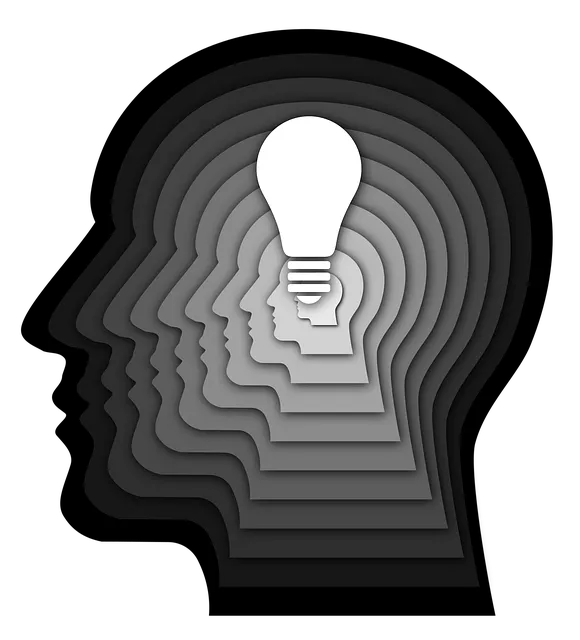The Westminster Kaiser Permanente mental health department is at the forefront of innovative self-assessment tools, prioritizing early intervention and prevention for improved mental wellness. Their comprehensive frameworks, like Emotional Healing Processes, integrate evidence-based practices and technology to offer holistic assessments. A cutting-edge tool targeting employee mental wellness and resilience underscores their commitment to workplace mental health, promoting personalized insights and proactive solutions via assessment of emotional well-being, stress management, and coping strategies. Regular updates and expert feedback ensure the tool's effectiveness for Kaiser Permanente's diverse workforce, alongside fostering a compassionate work environment.
Mental wellness self-assessment tools play a pivotal role in enhancing access to personalized care, particularly within integrated health systems like Westminster Kaiser Permanente’s mental health department. This article delves into the critical need for such tools, explores effective design principles, and presents a case study of the implementation and evaluation of a tailored tool developed by the Westminster Kaiser Permanente Mental Health Department, serving as a model for other healthcare organizations.
- Understanding the Need for Self-Assessment Tools in Mental Health Care
- Designing Effective Mental Wellness Self-Assessment Tools
- Implementation and Evaluation of the Westminster Kaiser Permanente Mental Health Department Tool
Understanding the Need for Self-Assessment Tools in Mental Health Care

In today’s fast-paced world, mental wellness is as crucial as physical health, and self-assessment tools play a pivotal role in managing it. The Westminster Kaiser Permanente mental health department has recognized this growing need, leading to the development of innovative resources for individuals to take charge of their mental well-being. With a focus on early intervention and prevention, these tools aim to empower people to identify their mental health status, track changes over time, and proactively seek support when needed.
The Stress Management Workshops Organization, in collaboration with other mental health advocates, has been instrumental in shaping this initiative. By integrating coping skills development and resilience-building techniques into self-assessment practices, individuals can gain valuable insights into managing stress, anxiety, and potential mental health challenges. This proactive approach ensures that people are equipped with the necessary tools to navigate life’s complexities, fostering a sense of balance and overall well-being.
Designing Effective Mental Wellness Self-Assessment Tools

Designing effective mental wellness self-assessment tools requires a multi-faceted approach to capture the nuances of an individual’s emotional well-being. At Westminster Kaiser Permanente, the mental health department leverages evidence-based practices and innovative technology to create comprehensive assessments that go beyond basic symptoms. Tools like the Emotional Healing Processes framework integrate various aspects of life, including relationships, stress management, and coping strategies, providing a holistic view of one’s mental health.
The Mental Wellness Journaling Exercise Guidance is another effective component, encouraging individuals to reflect on their thoughts, feelings, and behaviors over time. This practice not only enhances self-awareness but also facilitates the development of inner strength. By combining these approaches, Westminster Kaiser Permanente ensures that its self-assessment tools are not just diagnostic but also empowering, guiding users towards better understanding and managing their mental wellness.
Implementation and Evaluation of the Westminster Kaiser Permanente Mental Health Department Tool

The Westminster Kaiser Permanente Mental Health Department has developed a comprehensive self-assessment tool designed to support employees’ mental wellness and resilience. This initiative aims to address the growing importance of mental health in the workplace, focusing on early intervention and proactive measures. The tool incorporates various assessment dimensions, including emotional well-being, stress management, and coping strategies. It provides individuals with valuable insights into their mental health status, fostering self-awareness exercises that encourage personal growth.
By utilizing this tool, the department seeks to identify potential risks and burnout prevention issues early on, enabling targeted interventions. Moreover, it incorporates elements of compassion cultivation practices, promoting a supportive work environment. The assessment is regularly updated and evaluated based on feedback from users and mental health professionals, ensuring its relevance and effectiveness in meeting the evolving needs of Kaiser Permanente’s workforce.
The development of mental wellness self-assessment tools is a vital step forward in empowering individuals to take charge of their mental health. As highlighted by the successful implementation at the Westminster Kaiser Permanente Mental Health Department, these tools can effectively reach and engage diverse populations. With ongoing refinement based on user feedback and clinical insights, such assessments have the potential to significantly impact early intervention and treatment outcomes. By integrating these resources into mental health care, we can foster a more holistic approach, encouraging proactive management of mental wellness alongside professional support.






